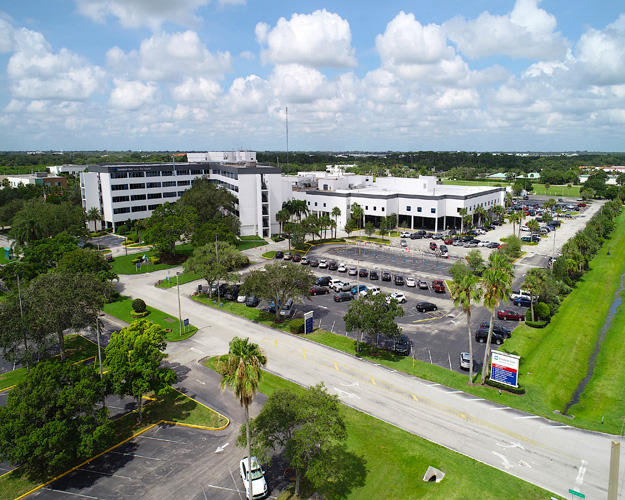
The number of new COVID-19 infections locally held steady this past week, up from 101 cases to 102 cases, according to the Florida Department of Health. Hospitalizations edged up slightly.
According to the Centers for Disease Control and Prevention Covid Data Tracker, five people were newly hospitalized during the week ending Oct. 27. But as of Monday, “Cleveland Clinic Indian River Hospital has 10 COVID positive patients in-house today, none in the ICU,” said hospital spokesperson Erin Miller.
That’s up from nine covid-positive patients last week, and five the week before.
Public health officials are still predicting a winter surge of COVID-19 cases fueled by several different highly contagious Omicron subvariants, so senior citizens and other people at risk of serious covid illness are being urged to get up to date with their covid vaccinations.
So far the vaccine has only been available by shot, and it can take weeks to acquire robust immunity to the virus after getting the jab, but next year’s boosters could come in a different form.
Researchers at Yale University have developed an inhaled COVID-19 vaccine booster that they say would offer better and quicker protection of the respiratory system, delivered straight to the lungs through the nasal cavity.
Yale reported on the new vaccine last week, as the research was published in the journal Science.
“The new vaccine approach developed by Yale researchers – which is known as ‘Prime and Spike’ – is designed to jumpstart immune response in the respiratory system, which is the first part of the body to be infected by the virus,” Yale reported.
The new formula was developed to combat waning immunity and breakthrough infections that have been observed four months or more after a traditional, intramuscular dose of vaccine. By following up a covid vaccine shot, designed to “prime” the body with a broad immune response, Yale researchers say the inhaled vaccine used as a booster will prompt a “spike” in immunity where it’s needed most.
“The nasal vaccine promotes the development of immunity within the respiratory system, which can respond more quickly to infection,” said Dr. Benjamin Goldman-Israelow, assistant professor of medicine (infectious diseases) at the Yale School of Medicine and co-corresponding author of the paper. “By creating mucosal immunity, the vaccine helps stop the virus at its entry point, rather than waiting until later to fight back.”
The Yale team has tested the inhaled vaccine on vaccinated and unvaccinated mice, then infected the mice with the COVID-19 virus.
“Mice that had not been previously vaccinated, and vaccinated mice that did not receive nasal vaccine, died from infection. Meanwhile, mice that received the intranasal spike booster were completely protected from death and disease,” Yale reported.
When tested on hamsters, the inhaled vaccine decreased virus load and reduced virus shedding as well.
Dr. Akiko Iwasaki, who heads up the Yale research team, first published a paper on the inhaled vaccine’s promise in February.
Yale reports Iwasaki saying, “Our data demonstrated that Prime and Spike significantly reduced the viral load in the nasal cavity and the lung compared to injected vaccine alone, indicating the promise of Prime and Spike in reducing infection and transmission.
“Improving upon current vaccine platforms to provide mucosal immunity is important to prevent infection and transmission,” she said.
The Yale scientists teamed up with pharmaceutical industry veterans to form Xanadu Bio, which now holds the exclusive license and options on the inhaled vaccine.



